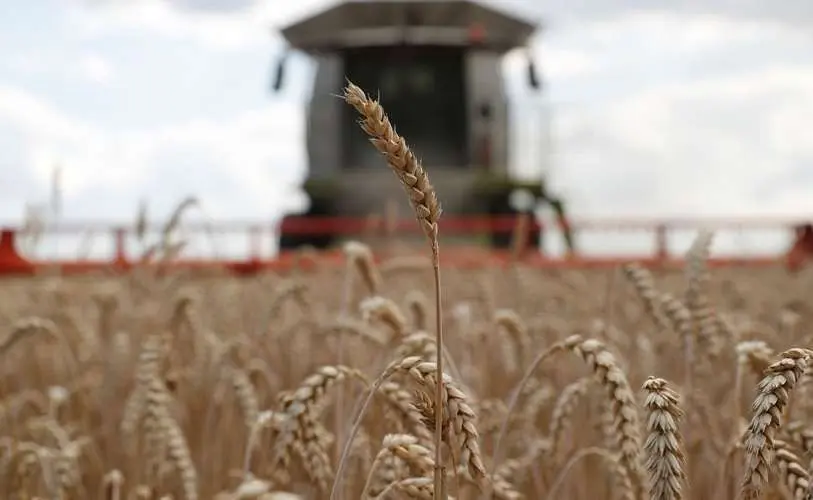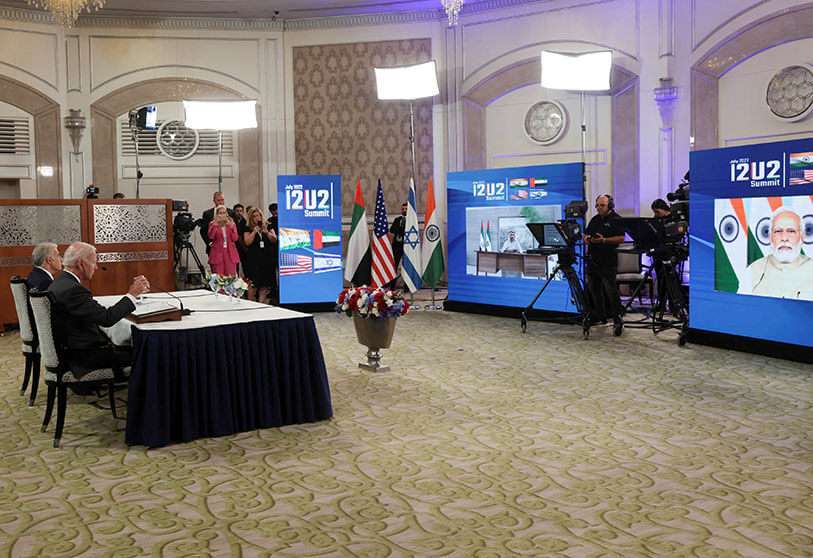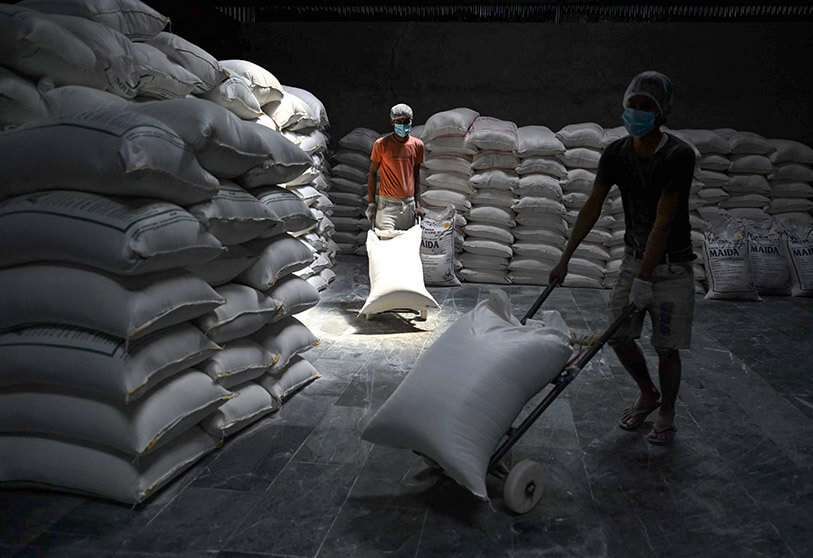The India-Arab Emirates-Israel route, an alternative for global food security

Many decades have passed since the world was last forced to confront a succession of global crises as close together as the international economic and trade paralysis caused by the coronavirus pandemic and the energy and food consequences of Russia's invasion of Ukraine.
"In the 21st century, the challenges are local, but the solutions must be global," Israeli Prime Minister Yair Lapid said a few weeks ago after meeting his Emirati, Indian and US counterparts, Mohammed bin Zayed, Narendra Modi and Joe Biden, respectively. "We need to think in new terms when it comes to energy, food security, water technology, defence and trade".
This was the purpose for which the four leaders met on 14 July via telematics in what has been billed as the first summit of the I2U2 (India-Israel and United States-United Arab Emirates) group. The meeting focused on cooperation between the four powers in the fields of renewable energy and food security.

In this sense, the three Asian powers are working on the creation of a food corridor linking India - the world's second largest wheat producer after China - with the Middle East region in order to avoid the repercussions of new global crises, guarantee food security in the Gulf and increase the value of India's food production. This was reflected in the joint statement issued by the four I2U2 leaders in mid-July: "innovative ways to ensure more diverse and longer-term food production and delivery systems to better manage global crises have been discussed".
Thus, the route will start on the Indian coast of the Arabian Sea, passing through Emirati ports as an important link to Israel's Mediterranean coast; and while it will serve as an alternative to China's Belt and Road Initiative, it is not born with an 'anti-Chinese' purpose coordinated by Washington. It is also expected to triple food trade between the UAE and India by 2025.
Each of the countries involved will bring its experience and capabilities to the project, with Abu Dhabi planning to invest $2,000 to develop a food chain complex using green technologies across India, seeking to reduce food waste, conserve fresh water and use renewable energy sources. For its part, India will provide land and incorporate its farmers, while the United States and Israel will encourage their private sectors to offer their expertise.

The 'West Asian Quad', as some international analysts have described it, shares with the neighbouring alliance (consisting of the US, Australia, Japan and India) a regional, multilateral and informal character that aims to serve as a counterweight to China's growing influence in the Indo-Pacific.
It is yet another tool for the Washington administration to re-emerge and consolidate itself in the diplomatic arenas of the Middle East, Southeast Asia and the Indo-Pacific region. "We believe that I2U2 can become a feature of the broader region, just as the Quad has become a central pillar of the US Indo-Pacific strategy," said US national security adviser Jake Sullivan.

In any case, the I2U2 initiative revolves around a multiplicity of strategic issues that link the four countries. On the one hand, the normalisation of relations between the United Arab Emirates and Israel, with the signing of the Abraham Accords in 2020, enabled the two powers to develop the project for a railway network that, with 300 kilometres still to be built in Jordan and Saudi Arabia, will connect the territories of the two countries. In addition, a Free Trade Agreement was recently signed between Abu Dhabi and Tel Aviv, which will strengthen trilateral relations in the light of the existing agreement between the Emirates and India.
Moreover, as Michael Tanchum of the Institute of South Asian Studies at the National University of Singapore explained in his report 'India's Arab-Mediterranean Corridor: A Paradigm Shift in Strategic Connectivity with Europe', Riyadh and Abu Dhabi have devoted part of their efforts in recent years to funding the 'India-Middle East Food Corridor', boosting the transformation of Indian agriculture and water management with nearly USD 7 billion coordinated by the Emaar Group. These issues are evidence of the commercial interests that underpin regional geostrategic ties.
At the same time, the US's well-known determination to counterbalance Chinese power in the region (with the Belt and Road Initiative), coupled with Sino-Indian rivalry and New Delhi's interest in conquering new markets and expanding commercially in one of the largest economic centres of the 21st century, has only facilitated the creation of the alliance.










